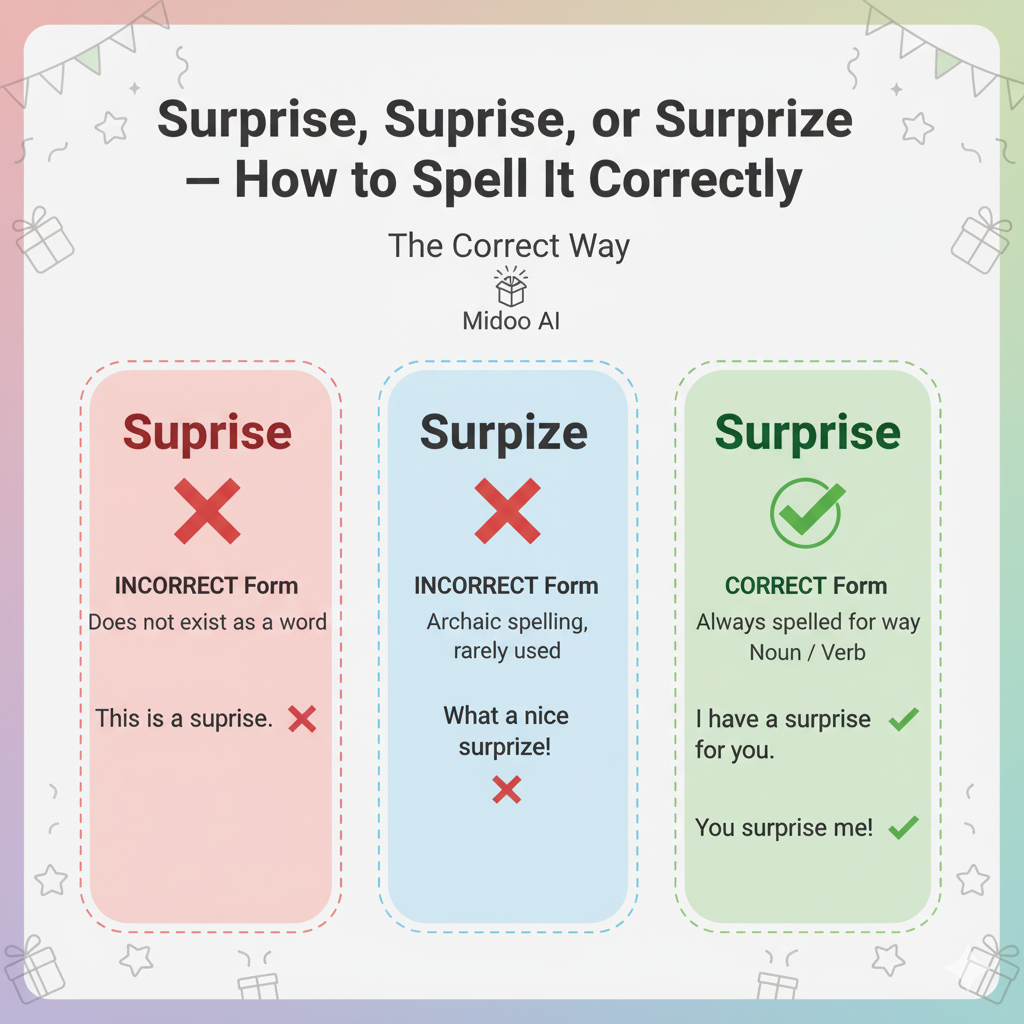Surprise, Suprise, or Surprize — How to Spell It Correctly

Have you ever typed “suprise” or “surprize” and wondered if it looked strange?
Don’t worry—many people do the same thing! Today, Midoo AI will help you remember the correct spelling of “surprise” so you’ll never get it wrong again.
Surprise — The Only Correct Spelling
“Surprise” is the correct and standard spelling in modern English.
It’s both a noun (a feeling or event) and a verb (to cause surprise).
Examples:
- The party was a big surprise.
- She wanted to surprise her best friend.
- I was surprised by the news.
- He gave me a surprise gift.
- What a wonderful surprise!
✅ Tip: Remember the “r” after “u.” Think of it like: suRprise = Real spelling.
Suprise — A Common Misspelling
“Suprise” is a very common mistake, but it is not a real word.
It happens because people don’t pronounce the first “r” clearly in speech, so they forget to write it.
❌ Incorrect: I have a big suprise for you.
✅ Correct: I have a big surprise for you.
Surprize — An Old Spelling
“Surprize” is an old-fashioned spelling that was used in older British English, but it is not used anymore.
Today, “surprise” is correct in both British and American English.
❌ Old: He planned a surprize party.
✅ Modern: He planned a surprise party.
Quick Trick to Remember
- The correct word always has “r” after “u” → suRprise.
- If it looks too simple, it’s probably wrong. (Suprise ❌)
- If it looks too fancy, it’s also wrong. (Surprize ❌)
FAQS
Q: Is “surprize” accepted in British English?
A: Not anymore. It was used long ago, but modern dictionaries list only “surprise.”
Q: Why do people write “suprise” by mistake?
A: Because the “r” sound is soft and sometimes skipped when speaking quickly.
Q: Is “surprise” both a noun and a verb?
A: Yes! You can say “a surprise” (noun) or “to surprise someone” (verb).
Q: Which is correct: “surprised of” or “surprised by”?
A: The correct phrase is “surprised by something,” not “of.”